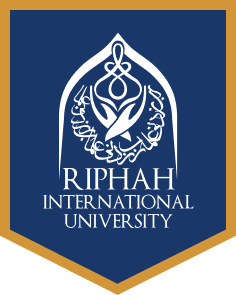PGD in Aphasia Assessment and Management SLP
The Postgraduate Diploma in Aphasia Assessment and Intervention aims to impart specialist knowledge in the field of speech language Pathology relevant to the disorder of Aphasia. The program will focus on the evidence-based approaches to assess and manage Aphasia difficulties with neurogenic conditions. After completion of this course students will be able to demonstrate a systematic understanding of formal assessment tools. They will also be able to formulate relevant treatment either conventional or advance level plans based on their diagnostic findings.
Students will be able to:
· Assess and manage Aphasia by using formal and informal tools and different therapeutic techniques according to type of aphasia
· Perform standardized test Quick aphasia battery, Boston Aphasia Examination Battery, Western Aphasia Battery, and Boston naming test.
· Management Aphasia through conventional approaches like MIT, VAT, CIAT, RET, PhotovoiceTherapy
· Management of Aphasia using advance and alternative methods like VESMP, TACTUS, and TobiDynovox.
· Able to train caregiver of aphasia’s through LPAA and Aphasia ASK programme.
The students will be able:
1. Use suitable assessment and management measures with reference to the personal, cultural, and pathological background of the adult population inflicted with Aphasia.
2. Administer timely intervention with a focus on resource conservation.
3. Represent as an effective communicator while being a resourceful team player.
4. Demonstrate personal accountability towards ethical and moral values of his/her society or community.
5. Exhibit eagerness towards learning in his professional development.
6. Contribute towards the beneficial expansion of the profession of speech and language pathology.
Objectives of Programme:
The graduates of the program will be able to:
1. Relate different neurological underpinnings pertinent to Aphasia and its impact on individual’s lives.
2. Assess the linguistic implications of the impairment with the help of valid and reliable assessment tools.
3. Demonstrate assessment and management of Aphasia across the lifespan.
4. Develop an evidence-based management plan according to the diagnostic findings drawn from formal and informal tests.
5. Practice in accordance with an ethical code that recognizes human rights, diversity, and the requirement to “do no harm.”
6. Implement the tailored management plan for population inflicted with Aphasia in multidisciplinary health care settings to enhance wellbeing of patients.
Program: Postgraduate Diploma in Aphasia Assessment and Management (PGD-ASLP/T)
Duration: One Year, 18 Credit Hours course work.
Level: Postgraduate
Eligibility: BS SLP/T (4 years), MS-SLP/T (2 years) from any HEC Recognized University
Course: Semester Based (2-Semesters) duration (18-weeks each)
Credit Hours: 18- Credit Hours
FEE STRUCTURE: Link
POSTGRADUATE DIPLOMA IN NEUROMUSCULAR PAIN MANAGEMENT
The Postgraduate Diploma in Neuromuscular Pain Management aims to impart specialist knowledge in the field of pain management and focuses on interdisciplinary and multidisciplinary approaches to pain management and service provision. Upon successful completion of this course, student will be able to demonstrate a systematic understanding of the care of patients with pain, deliver management strategies for the investigation and treatment of musculoskeletal pain conditions.
They will be able:
- Understand and explain the different mechanisms and its relevance to pain, one’s response to pain, and the impact of pain on one’s life.
- Apply knowledge of basic science of pain to person-centered assessment and management of pain.
- Assess the biological, physical, and psychosocial factors that contribute to pain, impairment, and disability using valid and reliable assessment tools.
- Develop an evidence-based management plan according to the specific pain conditions directed at reducing disability, improving function and facilitating recovery.
- Practice in accordance with an ethical code that recognizes human rights, diversity, and the requirement to “do no harm.”
- Implement the management plan including all the treatment approaches (Manual therapy Techniques, Dry Needling, Intra-articular injection and Nerve Blocks)
Program: Postgraduate Diploma in Neuromuscular Pain Management (PGD-NMPM)
Duration: One Year, 9 Credit Hours course work, 9 Credit Hours Residency
Level: Postgraduate
Eligibility: Doctor of physical Therapy (DPT-5 years from any HEC Recognized University or equivalent qualification.
Course: Semester Based (2-Semesters) duration (18-weeks each)
Credit Hours: 18- Credit Hours
Assessment Criteria/Plan
Semester Exam after 18 weeks
